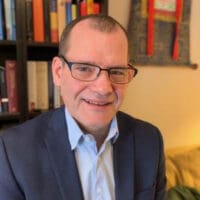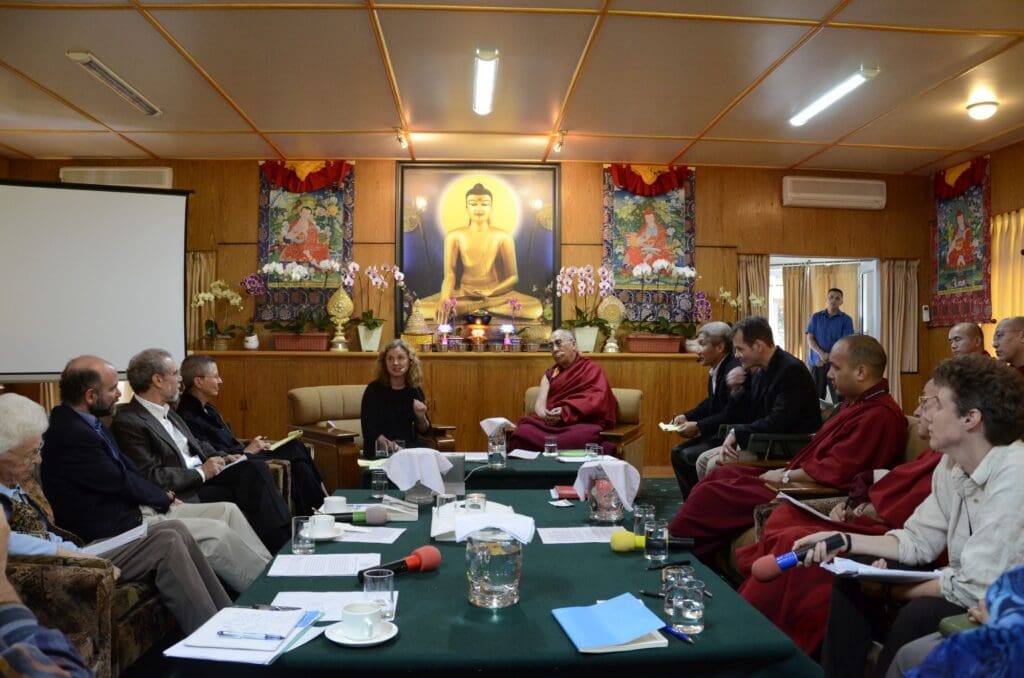Filmed during Mind & Life Institute’s “Mind & Life XXIII: Ecology, Ethics, and Interdependence” on October 18-19, 2011.
Topic Two – Ethics, Philosophy, Theology
A Role for Theology – Models of God, the World, and the Self
SPEAKER: Sallie McFague
“Be careful how you interpret the world. It is like that.” We live within our models, our worldviews, and they deeply and subtly influence the decisions we make, including ones about the environment. Hence, if we hold views of God, the world, and ourselves that are dualistic, individualistic, and anthropocentric, we will “naturally” decide that climate change, for instance, is not a serious matter. If, however, our worldview is one based on contemporary science as well as the deepest wisdom of many religions, a worldview that claims we are radically interrelated and interdependent with all other forms of life, then we will (or should) respond to our present crisis with similarly radical changes in our thinking and behavior. But do we? This is the critical question for all fields of concern with climate change, including the religions—and it is a very difficult one. What causes people to change at a deep enough level so their behavior changes as well? The shock of climate change may be the catalyst to awaken us from the lie of the current worldview of individual fulfillment through consumerism to the reality of fulfillment by sharing with needy fellow creatures and the earth itself, through religious understandings of limitation, detachment, and self-emptying. Could it be that the Christian notion of kenosis (self-emptying) is the other side of compassion and that a more inclusive sense of self (the universal, ecological self) is the product of both?
MODERATOR: John Dunne
PANELISTS:
His Holiness the 14th Dalai Lama
Dekila Chungyalpa
Daniel Goleman
Joan Halifax Roshi
Thupten Jinpa
Diana Liverman
Greg Norris
Clare Palmer
Jonathan Patz
Matthieu Ricard
Elke Weber
Participants

John Dunne, PhD
University of Wisconsin-Madison



